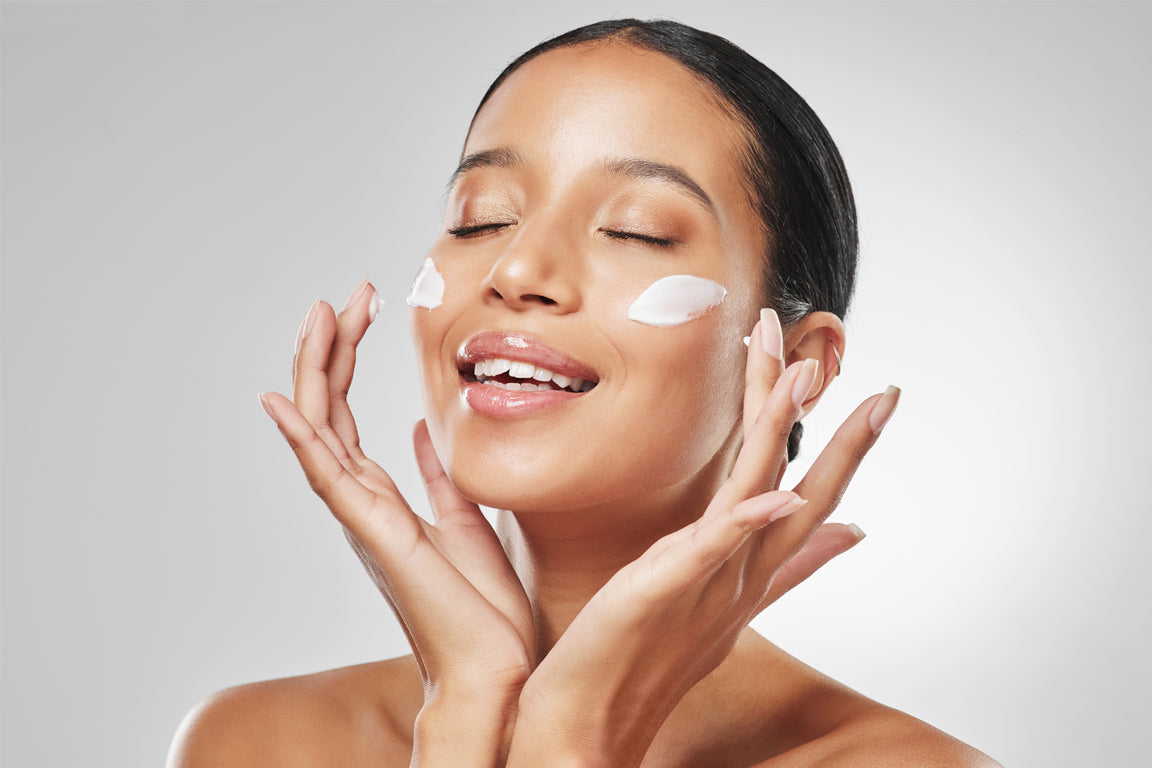Dr. Sethi's Favorite Skin Barrier Safe Brightening Ingredients
As a medical aesthetics skincare doctor, Dr. Sethi knows that the key to brighter skin is healthy skin. This can be achieved by choosing ingredients that repair and nourish the skin barrier to produce glowing results without destroying your skin tone.
Retinol can reduce the look of wrinkles, spots, uneven skin tone, and inflammation. In addition, by increasing skin cell turnover and boosting collagen production, uneven pigmentation can fade quickly, resulting in a brighter, even look.
To gain the best results from retinol, you will want to avoid higher concentrations to ensure no skin barrier damage. Higher concentrations may cause sensitivity, so it’s important to stick to a medium-concentration that also hydrates the skin with lipids.
Vitamin C
Vitamin C has become a beloved skincare superstar for its skin-brightening effects. This ingredient fortifies the skin’s defense against skin insults that cause increased pigmentation, like oxidative stress and photoaging.
Vitamin C in skincare can continuously fight the damage that occurs from UV exposure and pollution. It also strengthens collagen production and supports the skin’s natural rebuilding mode!
Glycolic Gel
Only a soothing Gycolic Gel can provide a gentle exfoliation for skin renewal and pore cleansing, which leads to brighter skin. Glycolic gel enhances skincare product absorption, which is essential. Glycolic gel can be used as a toner with a gentle cotton round, or even as a serum. It's safe to use Glycolic gel everyday, but can be reduced to 3-4 times per week.
Niacinamide
Niacinamide, also known as Vitamin B3, is growing in popularity among skincare brand formulations. It is commonly used as a hydrating agent in moisturizers, but it can also reduce uneven pigmentation for brighter and lighter skin!
What’s great about this ingredient is its hydrating effects, which can keep the skin barrier intact to avoid further skin insults and hyperpigmentation. However, it also aids with pigment problems by interfering with the cell-signaling pathway between our pigment-producing cells (melanocytes) so that skin insults are not converted into visible dark spots on the skin’s surface.
Product Ingredient That Are not Safe for Brightening
Some products on the market today can contain harmful ingredients (products with bleach should be avoided at all costs!). Although the ingredients below may be helpful for treating other skin concerns for a very short length of time, they are potentially disruptive to the skin barrier and may cause a gray cast to the pigment on your skin.
Hydroquinone
Hydroquinone is often used in treating patients with melasma, as it directly reduces the activity of the enzyme which promotes pigment production. However, it can cause increased sensitivity in people of color. In addition, Hydroquinone is not recommended for long-term use as it can cause Ochronosis, which means it gives the skin a gray appearance and is challenging to treat.
Peroxide
Peroxide is a bleaching agent that, When used in the skin, damages the skin barrier and causes hyperpigmentation. Peroxide should be avoided in skincare at all costs. Still, many bleaching creams and DIY home regimens use this ingredient in their formulations.
See all our medical grade and skin barrier-safe brightening products here!



